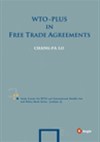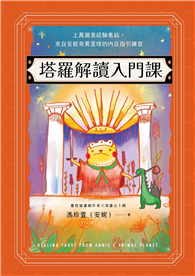PREFACE
The term “WTO-plus” is widely used. It is applied in various contexts to reflect the obligations assumed by a country being greater than what are currently imposed or required by the agreements under the WTO. More often it is used to describe the broader coverage of matters by the FTA than those required and covered by relevant WTO agreements. The discussions of this book focus on this aspect.
There are basically three categories of the provisions in FTAs: The first category includes those provisions dealing with the matters which are required by the GATT 1994 to be included in the FTAs. If there were no such provisions or contents included, the trade agreements would not be considered as legitimate FTAs under WTO and thus the agreements cannot be the basis for constituent members to depart from the MFN requirements. Provisions concerning tariff elimination and elimination of restrictive regulation of commerce between FTA parties are of this kind. The book discusses the extent that tariffs and other restrictive regulations of commerce are to be eliminated.
The second category includes those FTA matters not required by the WTO, but allowed or admitted by explicit WTO provisions or not denied by WTO practices. The matters explicitly allowed to be included in FTAs are those permitted under GATT Articles XI, XII, XIII, XIV, XV and XX. A difficult issue is whether those matters not in this list, especially the antidumping, countervailing and safeguard provisions in FTAs, are also allowed under the WTO. The book discusses the related issues for clarification.
The third category includes those matters not covered by the WTO or, although covered by the WTO, not allowed by the WTO to be an exception to the MFN principle. The intellectual property provisions in FTAs are basically the subject covered by the WTO but without specific authorization under the TRIPS Agreement to qualify such provisions in the FTAs as exceptions to the MFN obligation in this agreement. From the perspective that the inclusion of intellectual property protection in FTAs is not required by the WTO, they are WTO-plus provisions. From the perspective that many intellectual protections in FTAs exceed the minimum requirements of the TRIPS Agreement, such provisions are also TRIPS-plus.
The book discusses intellectual property right under FTAs as WTO-plus and TRIPS-plus.
The book will also analyze legal issues concerning GPA-plus issues because of its unique status from WTO perspective. Other WTO-plus issues discussed in this book include those relating to competition, investment, and environmental protection. These are all under the third type of FTA provisions, which can be generally considered as WTO-plus matters. The book will elaborate the plus aspects of FTAs concerning these issues.
In addition to those commonly included WTO-plus chapters in the FTAs, the book will also explore about whether it is appropriate to have a health chapter in FTAs to become a positive WTO-plus element.
The author expects that the book will clarify issues that have not been fully elaborated before so that there will be clear understanding on WTO-plus issues. Hopefully, it would help WTO Members to negotiate further rules on FTAs under the WTO, to formulate their FTA rules and policies concerning the plus aspects, and to help dispute settlement decisions on the related issues.
Chang-fa Lo
At Asian Center for WTO and International Health Law and Policy, National Taiwan University College of Law











